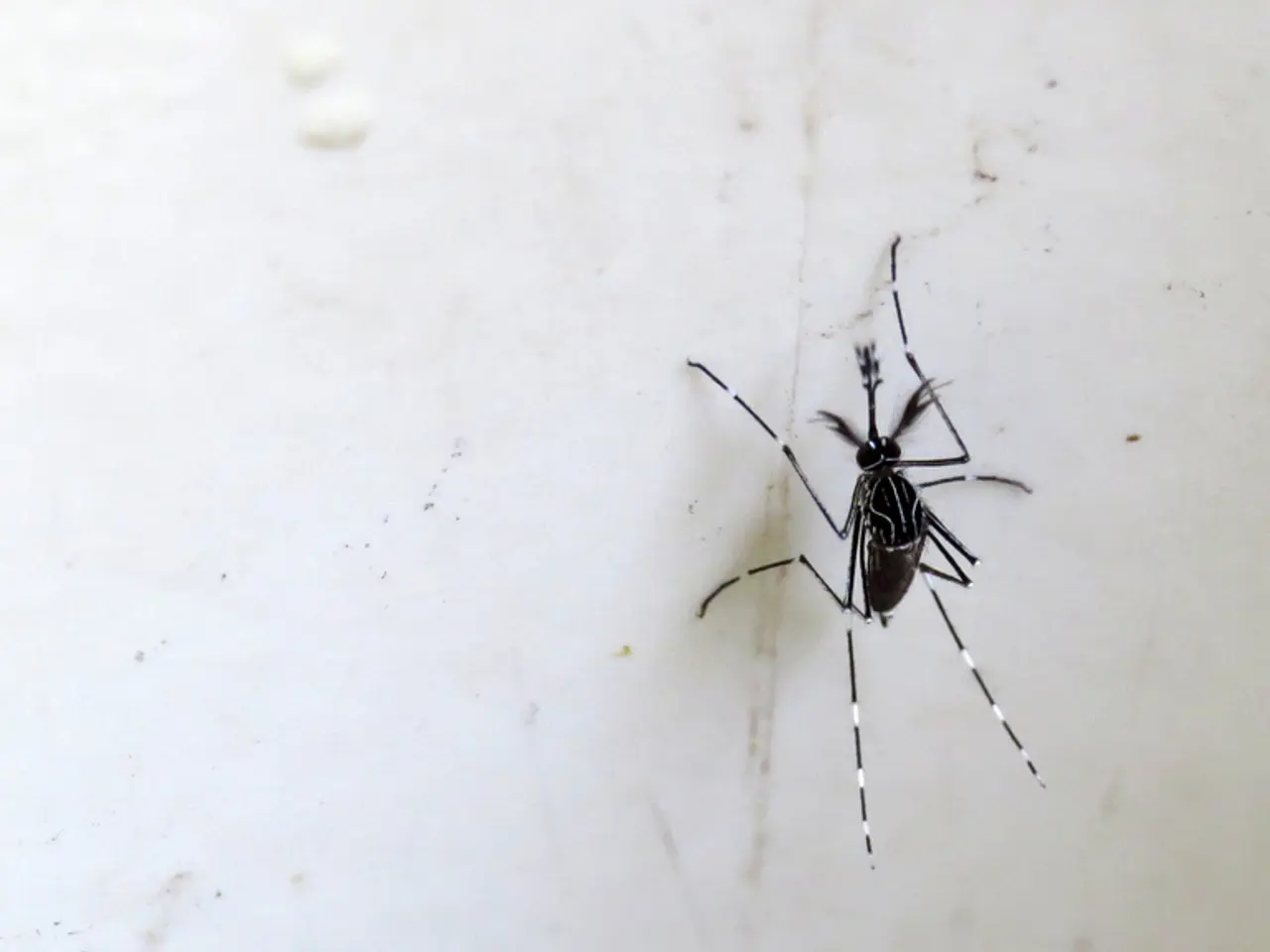Zika Virus: Global Health Concern With Distinctive Rash and Serious Complications
The Zika virus, first identified in 1947, has gained global attention due to its serious complications, particularly for pregnant women. Its distinctive rash, a combination of flat blotches and tiny reddish bumps, often appears within days of a mosquito bite. However, around 80% of infected individuals may not exhibit any symptoms.
The Zika virus is primarily spread by the bite of an infected Aedes mosquito, but it can also be transmitted through sexual intercourse, blood transfusions, or from mother to fetus. Unlike other flavivirus rashes, the Zika rash is often itchy, with 79% of cases reporting this symptom. When symptoms do occur, they typically include fever, headache, fatigue, conjunctivitis, and joint pain, resolving within two weeks.
In recent years, countries such as Brazil, parts of Central and South America, and some Caribbean nations have experienced significant outbreaks. These have resulted in serious complications for pregnant women, including birth defects like microcephaly. There is currently no vaccine for the Zika virus, so prevention involves protecting oneself against mosquito bites and taking precautions during pregnancy or when planning pregnancy.
The Zika virus, with its distinctive rash and potential serious complications, remains a global health concern. While prevention methods are available, the lack of a vaccine underscores the need for continued research and vigilance, especially in regions where the virus is prevalent.







